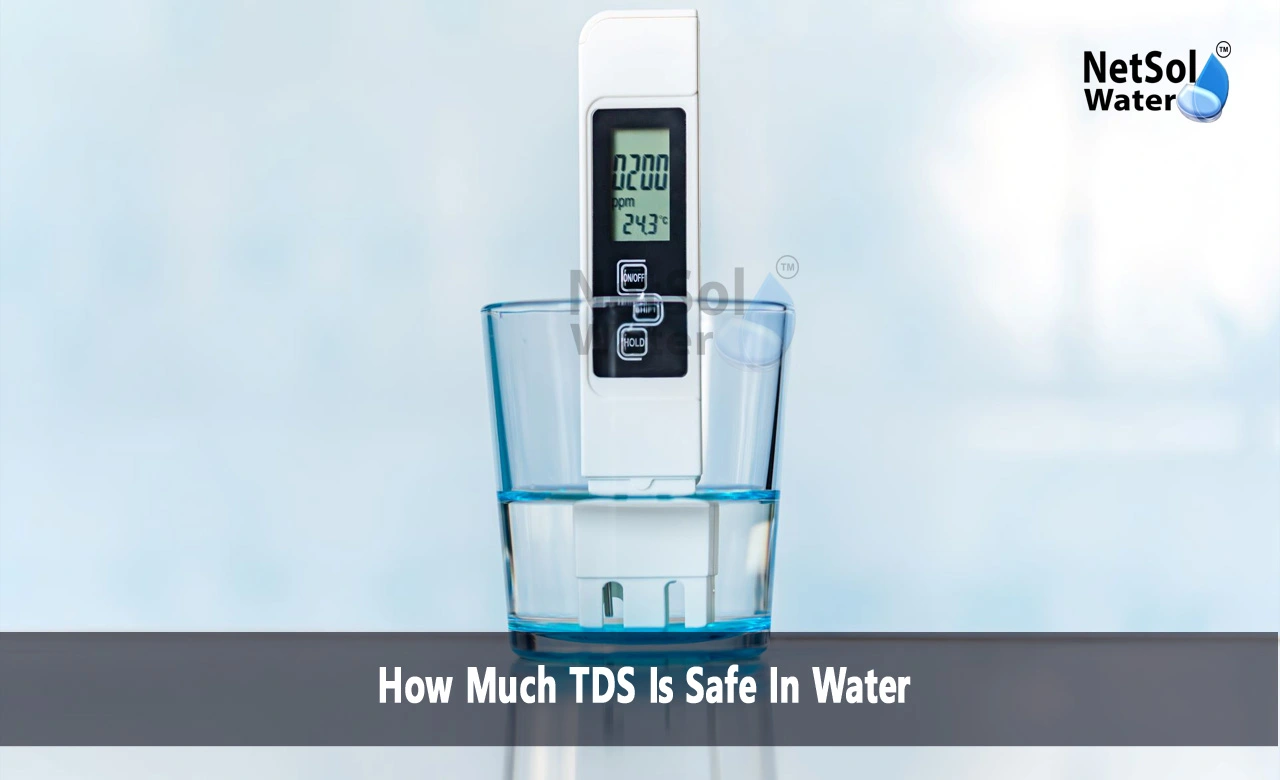How Much TDS Is Safe In Water?
The water you drink contains more than just H2O molecules. It holds dissolved materials known as Total Dissolved Solids (TDS). These invisible particles enter water as it moves through rocks soil minerals and plant matter. Your health depends on knowing the right TDS levels in your drinking water. Many people wonder about safe TDS ranges because too much or too little can affect both taste and health.
We will attention since water forms the foundation of our daily lives - from cooking and drinking to cleaning and bathing.
Think about the last time you tasted water that seemed off. The unusual taste likely came from its TDS content. Water with very low TDS often tastes flat while high TDS water can taste bitter or salty. But taste represents just one aspect of TDS effects. The right balance of minerals in your drinking water supports your body's functions. Yet excess minerals can create health issues over time. Understanding safe TDS levels helps you make informed choices about your water quality. This knowledge empowers you to protect your family's wellbeing through better water consumption habits.
Let's explore what makes up TDS how to measure it and most importantly what levels keep you safe.
What Makes Up Total Dissolved Solids in Water?
Before diving into safe levels we should understand what TDS actually means. When we talk about TDS we refer to both organic and inorganic materials present in water. Let's examine these components in detail.
Common Minerals Found in Water
Calcium magnesium and potassium make up most mineral content in water. These minerals enter water naturally through rock and soil contact. Each plays a specific role in water taste and your health.
Dissolved Metals in Water
Iron copper and zinc appear in varying amounts in water supplies. While some come from natural sources others enter through plumbing systems. These metals influence both water safety and taste.
Organic Matter Content
Plant debris bacteria and other organic materials contribute to TDS levels. These elements enter water through environmental exposure. Their presence affects both water quality and safety.
Understanding Safe TDS Ranges for Different Uses
Water serves various purposes in our lives. Each use has its ideal TDS range. Let's understand these ranges for different applications.
Drinking Water Standards: The World Health Organization suggests TDS levels below 500 parts per million (ppm) for drinking water. This range ensures both safety and good taste. Most people enjoy water with TDS between 200 to 400 ppm.
Agricultural Water Requirements: Plants need specific TDS ranges to grow well. Different crops tolerate different TDS levels. Most plants grow best in water with TDS below 1000 ppm.
Industrial Applications: Manufacturing processes demand specific water quality standards. Each industry has unique TDS requirements. These standards ensure product quality and equipment longevity.
Health Effects of Different TDS Levels
Your water's TDS content directly impacts your health. Understanding these effects helps you make better choices about your water consumption.
Benefits of Balanced TDS: Water with appropriate mineral content supports your body's needs. It provides essential minerals through daily consumption. This natural mineral intake contributes to overall health.
Risks of High TDS: Excessive TDS levels can cause various health issues. These problems range from minor digestive issues to long-term health concerns. Understanding these risks helps you avoid potential problems.
Effects of Low TDS: Very low TDS water might lack essential minerals. This deficiency can affect your mineral intake. Some people report flat taste with very low TDS water.
Conclusion:
Your understanding of TDS helps you make informed decisions about water quality. Consider testing your water's TDS levels to ensure safety. Many affordable TDS meters provide quick readings at home. For professional water quality assessment contact local water testing services. They can analyze your water and recommend appropriate solutions for any TDS issues.
To explore customised commercial RO plants, Industrial RO plants, ETP or STP solutions for your needs in your areas and nearby regions, Contact Netsol Water at:
Phone: +91-965-060-8473, Email: enquiry@netsolwater.com



